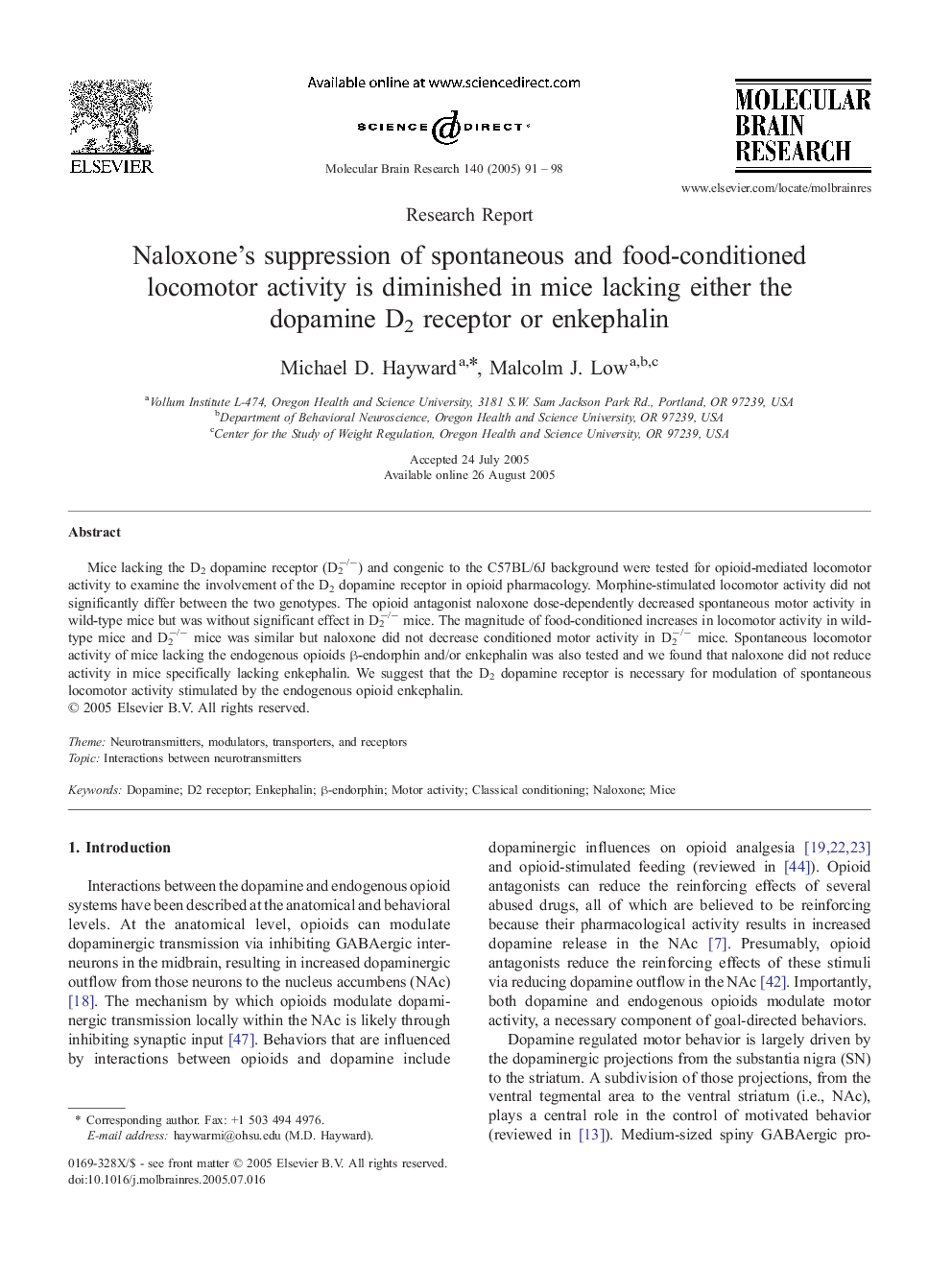| Article ID | Journal | Published Year | Pages | File Type |
|---|---|---|---|---|
| 9410553 | Molecular Brain Research | 2005 | 8 Pages |
Abstract
Mice lacking the D2 dopamine receptor (D2â/â) and congenic to the C57BL/6J background were tested for opioid-mediated locomotor activity to examine the involvement of the D2 dopamine receptor in opioid pharmacology. Morphine-stimulated locomotor activity did not significantly differ between the two genotypes. The opioid antagonist naloxone dose-dependently decreased spontaneous motor activity in wild-type mice but was without significant effect in D2â/â mice. The magnitude of food-conditioned increases in locomotor activity in wild-type mice and D2â/â mice was similar but naloxone did not decrease conditioned motor activity in D2â/â mice. Spontaneous locomotor activity of mice lacking the endogenous opioids β-endorphin and/or enkephalin was also tested and we found that naloxone did not reduce activity in mice specifically lacking enkephalin. We suggest that the D2 dopamine receptor is necessary for modulation of spontaneous locomotor activity stimulated by the endogenous opioid enkephalin.
Keywords
Related Topics
Life Sciences
Neuroscience
Cellular and Molecular Neuroscience
Authors
Michael D. Hayward, Malcolm J. Low,
